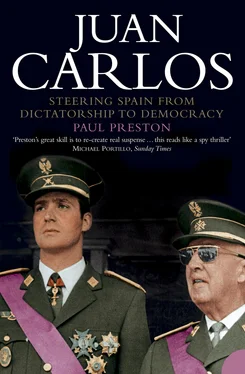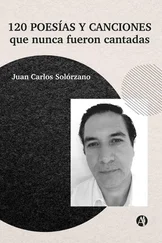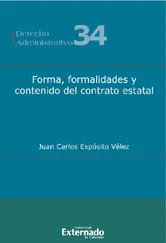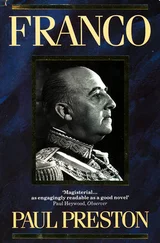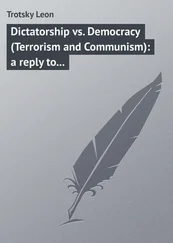Nevertheless, the imminent final defeat of the Third Reich, together with Don Juan’s pressure, impelled Franco to make a crudely cynical gesture aimed at undermining the Pretender’s position among monarchists inside Spain. Over several days in the first half of April 1945, he discussed the idea of adopting a ‘monarchical form of government’. Monarchists within the Francoist camp were thus offered a sop to their consciences, together with an assurance that they need not face the risks of an immediate change of regime. At the same time, the cosmetic change would help the Allies forget that Franco’s regime had been created with lavish Axis help. A new Consejo del Reino (Council of the King) would be created to determine the succession. Grandiosely billed as the supreme consultative body of the regime, its function was simply to advise Franco, who would have no obligation to heed its advice. Moreover, the emptiness of the gesture was exposed by the announcement that Franco would remain Head of State and that the King designated by the Consejo would not assume the throne until Franco either died or abandoned power himself. A pseudo-constitution known as the Fuero de los Españoles (Spaniards’ Charter of Rights) was also announced.
Given his messianic conviction in his own God-given right to rule over Spain, Franco could never forgive Don Juan for trying to use the international situation to hasten a Borbón restoration. He believed that, if he could buy time from his foreign enemies and his monarchist rivals with cosmetic changes to his regime, the end of the War would expose, to his benefit, the underlying conflict between the Western Allies and the Soviet Union. His confidence was well-founded. On 19 June, at the first conference of the United Nations, which had been in session in San Francisco since 25 April, the Mexican delegation proposed the exclusion of any country whose regime had been installed with the help of the Armed Forces of the States that had fought against the United Nations. The Mexican resolution, drafted with the help of exiled Spanish Republicans, could apply only to Franco’s Spain and it was approved by acclamation. 62 Within the Spanish political class, it was assumed that there would now be negotiations for the restoration of the monarchy. 63 However, aware that, in Washington and London, there were those fearful that a hard line might encourage Communism in Spain, Franco and his spokesmen simply refused to accept that the San Francisco resolution had any relevance to Spain, making the most bare-faced denials that his regime was created with Axis help. 64
Shortly afterwards, Franco would adopt a strategy aimed at reversing Don Juan’s advantage in the international arena. The Fuero de los Españoles was introduced with a speech that implied to Spaniards and Western diplomats alike that any attempt to remove or modify the regime would open the gates to Communism. 65 Within one month, he reshuffled his cabinet in order to eliminate the ministers most tainted by the Axis stigma and brought in a number of deeply conservative Christian Democrats. They, and particularly the most prominent of them – Alberto Martín Artajo as Foreign Minister – permitted Franco to project a new image as an authoritarian Catholic ruler rather than as a lackey of the Axis. 66
A fervent Catholic, Martín Artajo owed his appointment to the recommendation of Captain Carrero Blanco, with whom he had spent nearly six months between October 1936 and March 1937 in hiding in the Mexican Embassy in Madrid. He accepted the post after consultation with the Primate, Cardinal Plá y Deniel, and both were naïvely convinced that he could play a role in smoothing the transition from Franco to the monarchy of Don Juan. 67 Franco was happy to let them believe so, but intended to maintain an iron control over foreign policy. The subservient Artajo would simply be used as the acceptable face of the regime for international consumption. Artajo told the influential right-wing poet and essayist, José María Pemán, a member of Don Juan’s Privy Council, that he spoke on the telephone for at least one hour every day with Franco and used special earphones to leave his hands free to take notes. Pemán cruelly wrote in his diary: ‘Franco makes international policy and Artajo is the minister-stenographer.’ In the first meeting of the new cabinet team, on 21 July, Franco told his ministers that concessions would be made to the outside world only on non-essential matters and when it suited the regime. 68
While nonplussed by the clear evidence that Franco had no immediate intentions of restoring the monarchy, Don Juan was encouraged by the appointment of Martín Artajo, whom he trustingly regarded as one of his supporters. It was the beginning of a process in which Don Juan was to be cunningly neutralized by Franco. As part of a plan to drive a wedge between Don Juan and his more outspoken advisers, Gil Robles, Sainz Rodríguez and Vegas Latapié, Franco encouraged conservative monarchists of proven loyalty to his regime to get close to the royal camp. One of the most opportunistic of these was the sleekly handsome José María de Areilza, a Basque monarchist who had been closely linked to the Falange in the 1930s. Areilza had acquired the aristocratic title of Conde de Motrico through marriage and his impeccable Francoist credentials had been rewarded when he was named Mayor of Bilbao after its capture in June 1937. In 1941, he wrote with Fernando María Castiella, the ferociously imperialist text Reivindicaciones de España (Spain’s Claims) and had aspired to be Ambassador to Fascist Italy. After the War, he moved back to the pro-Francoist monarchist camp, and would be named Ambassador to Buenos Aires in May 1947. His visits to see Don Juan were dutifully reported to the British Embassy to give the impression that Franco was negotiating the terms of a restoration and so buy him more time. 69
The wisdom of Franco’s policy, and the waning prospects of Don Juan, were both illustrated by the relatively toothless Potsdam declaration which reiterated Spain’s exclusion from the United Nations but made no suggestion of intervention against the Caudillo. Statements from the British Labour government that nothing would be done that might encourage civil war in Spain heartened the Caudillo further. 70 Don Juan would have been even gloomier had he known of a report on the regime’s survival drafted at this time by Franco’s ever more influential assistant, Captain Carrero Blanco. It was a brutally realistic document which rested on the confidence that, after Potsdam, Britain and France would never risk opening the door to Communism in Spain by supporting the exiled Republicans. Accordingly, ‘the only formula possible for us is order, unity and hang on for dear life. Good police action to anticipate subversion; energetic repression if it materializes, without fear of foreign criticism, since it is better to punish harshly once and for all than leave the evil uncorrected.’ There was no place for Don Juan in that future. 71 On 25 August 1945, Franco sacked Kindelán as Director of the Escuela Superior del Ejército (Higher Army College) for making a fervently royalist speech predicting that the Pretender would soon be on the throne with the full support of the Army. 72
Anxious to establish control over Don Juan, in the autumn of 1945, Franco through intermediaries suggested that if the heir to the throne took up residence in Spain, he would be provided with a royal household fit for a future King. The message, passed on by Miguel Mateu Pia, the Spanish Ambassador in Paris, made it clear that Franco had no intention of any sudden change. He was merely looking for a way of placating both the Great Powers and the monarchist conspirators in the Army. Don Juan had no desire to become the Caudillo’s puppet and was still hopeful of military action to overthrow the regime. Accordingly, he rejected the offer out of hand – commenting ‘I am the King. I do not enter Spain by the back door.’ The refusal was underlined when Don Juan told La Gazette of Lausanne that the need to ‘repair the damage done to Spain by Franco’ made the restoration of the monarchy an urgent necessity. He denounced Franco’s regime as ‘inspired by the totalitarian powers of the Axis’ and spoke of his intention to re-establish the monarchy within a democratic system similar to those of Britain, the United States, Scandinavia and Holland. 73
Читать дальше
